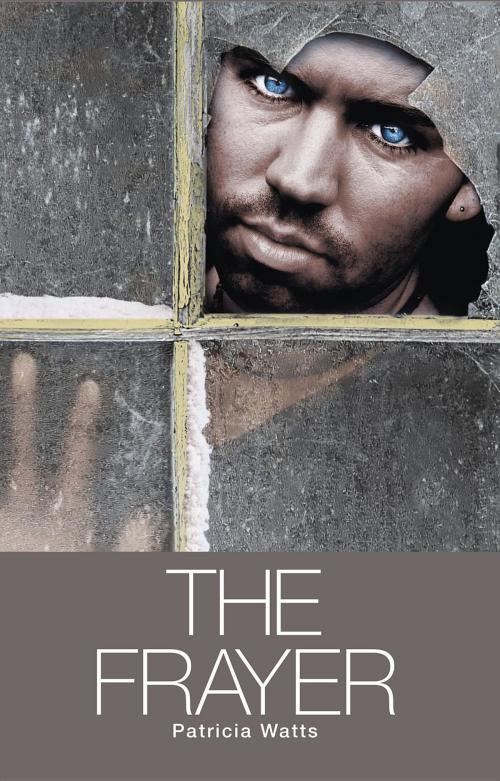| Author: | Patricia Watts | ISBN: | 9781936135561 |
| Publisher: | Blazing Sapphire Press | Publication: | April 11, 2018 |
| Imprint: | Golden Antelope Press | Language: | English |
| Author: | Patricia Watts |
| ISBN: | 9781936135561 |
| Publisher: | Blazing Sapphire Press |
| Publication: | April 11, 2018 |
| Imprint: | Golden Antelope Press |
| Language: | English |
In Patricia Watts’ new novel, The Frayer, we watch an uncannily seductive Louisiana bayou man as he goes about “fraying” the inhabitants of a prosperous apartment building in Fairbanks, Alaska, and destroying the building itself. Angelo Fallon’s eerie powers are both physical and psychological. Physically, he can make chunks of plaster fall from walls, and massive chandeliers break loose from ceilings. And he can seduce, apparently, just about anyone he chooses to seduce. Big Blue, the building itself, narrates the story of Angelo’s machinations: tiny cracks start appearing in Blue’s walls as soon as the villain walks in. But Blue, who can read the thoughts of most of his inhabitants, sees only a wave of black when he searches inside Angelo’s mind. Within a few pages, Angelo Fallon has caused Corrine, the building’s owner, to break a leg.
Psychologically, Angelo is a master at sowing discord. He knows the weaknesses and hidden needs of the individuals he has decided to destroy, and he skillfully insinuates himself into their lives. So, having made Corrine vulnerable, he becomes her caretaker, then her controller. He creates mistrust, using loaded questions and pretended concern to turn her against her friend Jasmina, the coffee shop owner who teaches belly dancing on Blue’s ground floor. He widens the rift by seducing both women, then further isolates Corrine by turning his bluesy saxophone-playing charm on her closeted gay friend Lonnie. (The seduction scenes are steamy.)
Big Blue senses the cracks growing, the mold forming as Angelo plays his frayer games. He watches, frets, and tries to intervene. But can he do more than wring his non-existent hands? Can his sixty years of caring, and the deeper instincts of Angelo’s flawed victims, save him—or them?
Patricia Watts’ surreal premise quickly pulls readers into a novel which blends horror and heroism, eros and architecture. Her long career as an investigative journalist in Fairbanks is evident in the skill with which she creates and motivates her characters, the detailed care with which she describes her scene, the suspense she builds, the inevitable deceptions and self-deceptions she slowly uncovers.
In Patricia Watts’ new novel, The Frayer, we watch an uncannily seductive Louisiana bayou man as he goes about “fraying” the inhabitants of a prosperous apartment building in Fairbanks, Alaska, and destroying the building itself. Angelo Fallon’s eerie powers are both physical and psychological. Physically, he can make chunks of plaster fall from walls, and massive chandeliers break loose from ceilings. And he can seduce, apparently, just about anyone he chooses to seduce. Big Blue, the building itself, narrates the story of Angelo’s machinations: tiny cracks start appearing in Blue’s walls as soon as the villain walks in. But Blue, who can read the thoughts of most of his inhabitants, sees only a wave of black when he searches inside Angelo’s mind. Within a few pages, Angelo Fallon has caused Corrine, the building’s owner, to break a leg.
Psychologically, Angelo is a master at sowing discord. He knows the weaknesses and hidden needs of the individuals he has decided to destroy, and he skillfully insinuates himself into their lives. So, having made Corrine vulnerable, he becomes her caretaker, then her controller. He creates mistrust, using loaded questions and pretended concern to turn her against her friend Jasmina, the coffee shop owner who teaches belly dancing on Blue’s ground floor. He widens the rift by seducing both women, then further isolates Corrine by turning his bluesy saxophone-playing charm on her closeted gay friend Lonnie. (The seduction scenes are steamy.)
Big Blue senses the cracks growing, the mold forming as Angelo plays his frayer games. He watches, frets, and tries to intervene. But can he do more than wring his non-existent hands? Can his sixty years of caring, and the deeper instincts of Angelo’s flawed victims, save him—or them?
Patricia Watts’ surreal premise quickly pulls readers into a novel which blends horror and heroism, eros and architecture. Her long career as an investigative journalist in Fairbanks is evident in the skill with which she creates and motivates her characters, the detailed care with which she describes her scene, the suspense she builds, the inevitable deceptions and self-deceptions she slowly uncovers.















